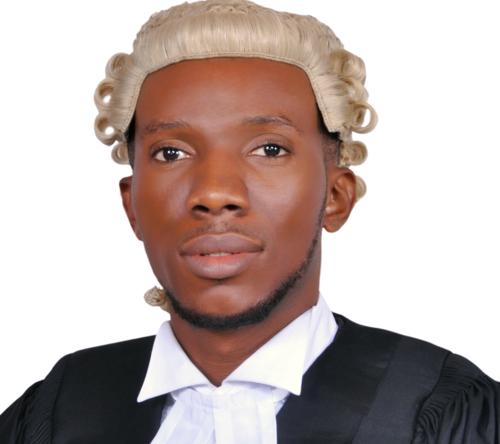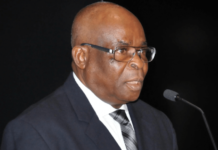(adsbygoogle = window.adsbygoogle || []).push({});
 |
| Inibehe Effiong |
My Constitutional Law lecturer in the University of Uyo, Akwa Ibom State, Dr. Imo Udofa used to tell us during lectures to talk law. He used to be irritated when law students departed from the law and based their answers to his questions on considerations other than law.
I have read and listened to the comments and views of many Senior Advocates of Nigeria and other lawyers who are ferociously opposed to the actions of the SSS, sadly none has been generous enough to cite relevant constitutional, statutory or judicial authorities that has been breached by the on going probe of some judicial officers by the State Security Service (SSS).
This morning, Mr. Joseph Daudu, SAN cited Section 214 of the Constitution on NTA to drive home his argument that only the Nigeria Police Force is saddled with the power of arrest. Unfortunately, and with due respect to the learned silk, the said provision has no bearing whatsoever on the current issue. The Section only provides for the establishment of the police and vest in the National Assembly the power to determine the duties of the police.
In the exercise of this power, the National Assembly enacted Section 4 of the Police Act Cap. P19 LFN 2004 and prescribed the duties of the police. It is a waste of time for us to begin to argue on whether the power of investigation, searches, arrest and prosecution of offences is exclusive to the police.
We all know that it is not.
Like I said in my article, the Economic and Financial Crimes Commission (EFCC) is the specialised and coordinating agency for the prevention, detection, investigation and prosecution of economic and financial crimes.
Though the SSS is primarily saddled with matters relating to the internal security of Nigeria, Sections 3 and 6 of the National Security Agencies Act 1986 empowers both the President and the National Assembly to enlarge the duties the SSS.
If President Buhari has decided that corruption, particularly judicial corruption, is a threat to the internal security of Nigeria, can we say that he is wrong in law or that he must issue an Executive Order or Instrument to that effect before the SSS can take action against judicial officers accused of corruption and economic crimes?
It is either judicial officers have immunity or they do not have. If they do we all know the implications and if they do not have immunity we also know the implications by virtue of Section 308 of the Constitution of the Federal Republic of Nigeria 1999 (as amended).
Ironically, Mr. Daudu conceded that serving judges can be investigated, arrested and prosecuted but he still insisted on due process without saying the specific process of law that has been violated.
We cannot approbate and reprobate at the same time.
The National Judicial Council (NJC) has no prosecutorial powers, it is neither a court of law nor a law enforcement agency.
I have challenged our learned colleagues to cite any law that makes the decision of the NJC on misconduct of judges which also constitutes a crime a condition precedent to the intervention of the law enforcement agencies. Sadly, not even one lawyer has been kind enough to take up the challenge.
It worries me when we as members of the legal profession depart from the law and predicate our arguments on extra-legal considerations.
If the NJC decides to also investigate, suspend or discipline the judges who are currently under probe, it is within their right to do so. But let no one say that the SSS cannot take actions without the approval of the NJC without citing the law that says so.
Neither the President nor the SSS has suspended any judge. The law does not say that a serving judicial officer cannot stand trial. It is for the NJC to determine whether such a situation will be good for the image of the judiciary or not. If the NJC is of the opinion that it will be improper and untidy for a judge to shuttle between the Bench and the dock the Council knows what to do.
Meanwhile, I hope we have read the reports by Sahara Reporters and Thisday Newspaper of how the NJC resisted and refused to cooperate with the SSS on investigation of allegedly corrupt judicial officers?
It is either a law has been violated or not. You cannot say that due process was not followed without telling us the specific process stipulated by law that was violated. Doing otherwise is a disservice to the legal profession and the public.
Dear learned colleagues, talk law and not sentiments and politics.
Thank you.











